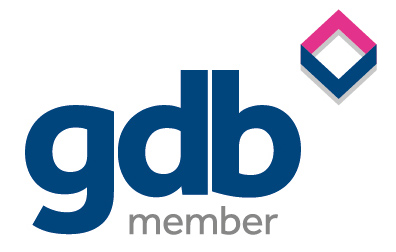Harvey John
Unit 2 Ferry Wharf
Hove Enterprise Centre
Basin Road North
Portslade, East Sussex
BN41 1BD
The tax profession is evolving faster than ever. Between global minimum tax rules, the adoption of emerging technologies, and growing operational complexity, organisations face increasing challenges in attracting and retaining the right talent.
In a recent discussion between Andrew Wilson, our very own Principal Consultant specialising in indirect tax and tax technology, and Susan Galberaith from SAP Insider, the conversation focused on tax talent trends, hiring strategies, and skills in demand for 2025.
Trends Shaping Tax Recruitment
One of the biggest drivers in tax recruitment is expertise in Pillar Two global minimum tax and e-invoicing. Organisations need professionals who can bridge the gap between legislation and technology, translating complex rules into actionable solutions.
“The challenge is, can you find people who understand how to get a piece of technology or product implemented… and be that bridge between the tax and the technology piece.”
Many smaller businesses are innovating rapidly, often with private equity backing, while larger companies are acquiring e-invoicing capabilities to integrate into their existing functions. Adaptability is essential—professionals must take new frameworks, tools, and systems and make them operational, scalable, and sustainable.
Understanding these trends and adapting to them is no longer optional—it is essential for both businesses and professionals who want to succeed in 2025 and beyond.
Skills in Demand
Employers increasingly seek professionals who can combine technical expertise with strategic thinking. Senior professionals must communicate complex issues concisely to leadership, while junior staff are expected to be proficient with data and technology tools like Alteryx, Tableau, Power BI, and Power Apps.
“Can you be an advocate for tax and what it can bring to the table?”
Understanding the broader ecosystem is equally important. Tax work does not exist in isolation—it interacts with accounting, shared services, and wider business strategy. Professionals who see the bigger picture and are open to experimenting with new approaches are highly sought after; they can even generate revenue in some instances.
Flexibility: A Key Factor in Attracting Talent
Flexibility has become a critical differentiator in tax recruitment. Organisations that enforce rigid office policies risk losing skilled professionals to competitors willing to offer remote or hybrid arrangements.
“Tax professionals and technology people don’t necessarily need to be in one place to do what they need to do… If you can show that you can have a remote first contract, or you only need to be in once a fortnight… that will make a big difference.”
Flexibility is not just about location; it also includes acknowledging peak workloads and enabling professionals to balance work with personal commitments. This approach broadens the pool of candidates and supports retention.
For consultancy firms and accounting practices, flexibility also includes the freedom to experiment with new tools and approaches. Being a successful tax technologist is about understanding the broader ecosystem, choosing the right technology for each situation, and helping clients achieve accurate, efficient, and innovative outcomes.
Hiring in Small Businesses
Smaller organisations often face budget constraints and narrower hiring pipelines. Contractors and interim professionals provide access to high-level expertise for defined projects and can later transition into permanent roles.
“There’s enormous value in looking at people who are contractors… That gives you the opportunity to make the business case to hire a permanent person later.”
This strategy allows smaller companies to access specialist knowledge without long-term commitments while still building sustainable in-house capabilities over time.
Recognising the Value of Tax Professionals
Many tax professionals underestimate their strategic impact. While often viewed as a compliance function, tax teams contribute to cost savings, risk mitigation, and revenue generation.
“The people in this profession carry enormous responsibility, and the right support—through training, flexibility, and recognition—can unlock remarkable potential for both organisations and individuals.”
Recruiters and managers play a critical role in helping professionals understand and communicate their worth, ensuring that tax teams are recognised for the value they bring.
Looking Ahead
The tax profession is at a pivotal moment. Organisations need to be adaptable, forward-thinking, and willing to invest in talent, while professionals must continually upskill, embrace technology, and understand their strategic importance.
“Tax touches everything… There are these people who have a lot on their shoulders… They need support because the value they add is huge, and they don’t generally realise how valuable they are.”
By staying informed, investing in the right people, and creating environments that support both growth and flexibility, organisations can build tax teams that not only thrive but also drive measurable business value.
Ready to Find the Right Tax Talent?
Harvey John’s specialist tax recruitment desk connects organisations with the professionals who can transform their tax function. Whether you’re hiring for permanent, interim, or contract roles, we help you identify talent with the right skills, experience, and strategic mindset.
Get in touch with Andrew to discuss your hiring needs and explore the market for yourself.
Author

Andrew collaborates primarily with international accountancy firms, consultancy businesses, and software houses that focus on tax solutions. His expertise working with professional services and senior tax leaders ensures a tailored approach to meet the unique needs of his clients.







